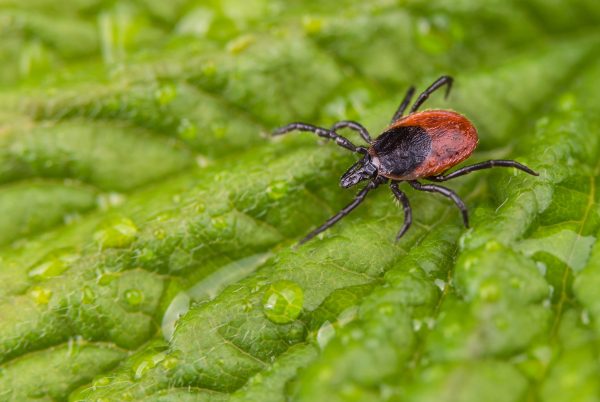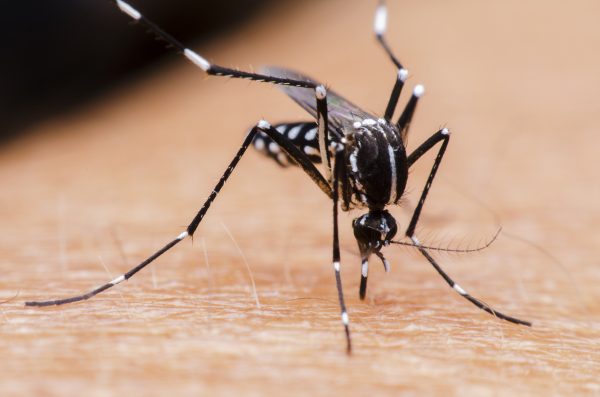Lyme Disease: The Tick-Borne Illness You Need To Be Aware Of
When discussing potentially harmful pests, a common one you’ll often hear about is ticks. These strange creatures latch onto a host through physical contact. You might be out enjoying nature and inadvertently come in contact with them in the grass or by brushing against one on a tree branch. These opportunistic pests can also be transferred onto you by another person or your pet.
Unfortunately, these pests can negatively impact your health. While mosquitoes are known to carry certain diseases like West Nile or Zika, infected ticks can transmit Lyme disease, which can cause serious health issues for many people. The thought of ticks may have you asking the question: Where did Lyme disease originate? To help you better understand Lyme disease and its origin, the pest control experts at Mosquito Joe® have some valuable information to share.
What Is Lyme Disease?
Lyme disease is a product of the bacterium Borrelia burgdorferi, commonly found in ticks in the United States. While you can get Lyme disease from a tick bite, not all ticks carry the disease. But you should take extra precautions, especially when walking in areas that are heavily wooded or have a lot of tall grass.
Symptoms of Lyme Disease
Symptoms of Lyme disease can vary between individuals who are infected, and symptoms don’t always show up immediately. Lyme disease skin manifestations and other symptoms can begin to appear anywhere from 3 days to a month after the initial bite.
If you have be bitten by a tick or suspect you have Lyme disease, here are some critical signs to look for:
Stage One
- A standard bug bite: Most people won’t know they’ve received a bite from a tick because they won’t feel the initial bite. Tick saliva has a chemical that acts as a local anesthetic. The chemical numbs the bite area, which often results in a bite going undetected. However, things can change by day three.
- Rash: Rashes are common Lyme disease skin manifestations. They may not hurt, but they’ll be warm to the touch. It’s best to stay away from scratching it. The tell-tale sign of a tick bite is a bulls-eye rash that appears around the bite area. The rash is red in the center and has additional red rings of red around it, which may increase in size over time.
- Fever, headache, chills: In addition to a rash, you may also experience a high fever, headache, and/or chills.
If you experience any of these symptoms after a tick bite, it’s important to seek medical attention as soon a s possible.
Stage Two
Failing to treat stage one of Lyme disease can lead to more severe symptoms in stage two, such as:
- Widespread rashes over your entire body.
- Extreme muscle soreness and weakness.
- Facial weakness on one or both sides of the face.
- Pain in lower limbs.
Once again, if any of these symptoms appear, you should seek help from a medical professional.
Stage Three
Stage three of Lyme disease includes many of the symptoms in stage two. However, a person may experience more pain and swelling in localized areas, such as the knees and other joints. You may also experience arthritis in certain joints.
FAQs About Lyme Disease
How Is Lyme Disease Diagnosed?
Lyme disease is tricky to diagnose because it shares similar symptoms with many other medical conditions. However, if you have been bitten by a tick or suspect that you may have Lyme disease, a blood test should be taken to confirm any presence of the disease.
It’s important to note that depending on when the test is administered, blood tests for Lyme disease are not always 100% accurate. During the early stages of the disease, a blood test may come back negative. However, if you receive positive results from your first blood test, you’ll be asked to submit another to determine the severity of your Lyme disease.
How Is Lyme Disease Treated?
Additional research still needs to be done to improve Lyme disease treatments. It is currently treated with antibiotics While this treatment is effective in the early stages, many people report experiencing long-term effects like fatigue and muscle pain.
Can You Get Lyme Disease From Mosquitoes?
When you hear that one pest has a disease, it’s not far-fetched to think others may carry the same disease. While mosquitoes can carry insect-borne illnesses, according to the CDC (Center for Disease Control), the answer is no.
There’s currently no evidence that indicates you can get Lyme disease from mosquitoes. Additionally, mosquito bites are typically very brief, whereas ticks must hang onto their host for hours or days to fully transmit Lyme bacteria.
Long-Term Complications of Lyme Disease
As mentioned above, if you don’t address the symptoms of Lyme disease during the initial stages, it can lead to longer-term complications. Even after treatment, some people still experience side effects of the disease, such as:
- Bodily aches
- Arthritis in knees and other joints that don’t seem to go away
- Lethargy
You could also face some neurological effects of Lyme disease that can impact your memory, facial muscles, and the muscles around your neck.
Ways To Protect Yourself From Lyme Disease
Lyme disease can be very debilitating for those infected, but this doesn’t mean you should never venture outside again. There are steps and precautions you can take to mitigate the risks. Follow these simple steps when visiting heavily wooded or sparsely populated areas, especially areas with tall, unkempt grass:
- Use tick repellants: Spray tick repellant on your clothes and shoes before going to a grassy or wooded area. It’ll keep them away while you’re outdoors.
- Wear light-colored clothing: Ticks and other pests are attracted to dark colors. Wear lighter colors to reduce the risks and to help someone spot one on you.
- Dress for protection: Although it might be warm during the summer, you’ll still need to wear the proper clothing when venturing outdoors. Avoid wearing open-toed shoes in areas where ticks may lurk. Also, wear long-sleeved shirts and/or pants for the time you’re outside to avoid a tick latching onto your legs.
- Hire service professionals: Rather than waiting to find out if you have ticks on your property, be proactive and hire a professional service. A barrier spray treatment provides a protective shield around your property, keeping pests out and away from your family and pets.
- Check for ticks: Always check for ticks if you’ve been engaging in an outdoor activity. Have someone inspect your clothing or use a mirror to check yourself and areas you cannot easily see.
Protect Yourself From Ticks and Other Annoying Pests
Insects are innovative, adaptable creatures, which explains why they have been in existence for so long. Protecting you, your family, and pets from the dangers of ticks requires a proactive approach. If you enjoy the outdoors, take preventive measures to keep ticks and other pests off your property.
For ultimate peace of mind, call on the professionals at Mosquito Joe®. Our tick control services are developed to protect your property from potentially harmful insects. We offer a range of pest control services. that are all backed by the Neighborly Done Right Promise™, which ensures your satisfaction. You don’t have to spend all your time indoors, because Mosquito Joe is making the outdoor fun again! Request a free quote today!








